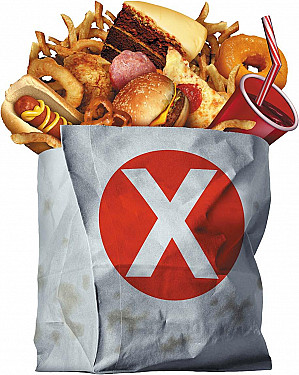Heart-healthy eating: How does your diet stack up?
The DASH diet — along with Mediterranean, pescatarian, and vegetarian eating patterns — received the highest marks in a recent ranking by the American Heart Association.
- Reviewed by Christopher P. Cannon, MD, Editor in Chief, Harvard Heart Letter; Editorial Advisory Board Member, Harvard Health Publishing

When you consider that 80% of heart disease can be prevented by healthy lifestyle habits, it makes sense to prioritize the one habit you can't live without: eating. But many people — including doctors — aren't sure which diets are best for keeping your heart healthy.
This problem was the inspiration behind a recent scientific statement from the American Heart Association (AHA), published May 30, 2023, in Circulation, says Dr. Frank Hu, professor of nutrition and epidemiology at the Harvard T.H. Chan School of Public Health. "People hear about all sorts of popular diets in the news and on social media. But they don't have a good sense about which ones actually have scientific evidence behind them," he says. Neither do most doctors, as they receive very little nutrition training as part of their education. (Note that although the word "diet" is often associated with weight loss, it more generally refers to the kinds of foods people typically eat.)
Evidence-based ranking
The statement ranks 10 popular diets based on how well they align with the AHA's dietary guidelines, which recommend limiting saturated fat and excess carbohydrates, especially highly processed carbs and sugary drinks (see "Popular diets: Common names, key features, and rankings"). The evidence comes from decades of randomized trials, population-based studies, and other research, says Dr. Hu, who served as a reviewer for the scientific statement.
"It's no surprise that all of the top-tier diets are mostly plant-based," says Kathy McManus, director of the Department of Nutrition at Harvard-affiliated Brigham and Women's Hospital. Vegetables, fruits, whole grains, beans, and nuts are all naturally low in saturated fat. They're also good sources of fiber and contain a variety of antioxidants. "What I like about the DASH and Mediterranean diets is that they include fish, which is a good source of both healthy fats and protein," she says. Canned fish, such as sardines, herring, and tuna, are affordable options, she adds. But these two diets (along with various iterations of vegetarian-style eating patterns) can also include a range of other healthy proteins, like beans, nuts, poultry, dairy products, and eggs.
Another reason the top two diets get high marks is that they encourage people to limit refined grains and added sugars. "A healthy dietary pattern should focus on whole, real foods and limit processed foods, which tend to add extra salt, sugar, and fat into your diet," says McManus. Over all, vegetarian and pescatarian diets tend to be quite healthy, but not if people simply avoid meat and fill up on processed foods, she adds.
Be flexible
Don't feel you have to abandon the familiar foods you grew up eating. "Following cultural traditions and preferences is important for helping people stay with a diet over the long term," says Dr. Hu.
McManus agrees. "You might need to make some adjustments to how your traditional favorite foods are prepared by swapping in a healthier fat or using less sodium," she says. You'll be more likely to stick with healthy, lasting changes if you make small, gradual changes that are flexible, family-friendly, and realistic, she adds.
Popular diets: Common names, key features, and rankingsThis table ranks popular diets based on how closely they align with heart-healthy guidelines. Those in tier 1 (green) adhere most closely. Tier 2 diets (light green) align well but may be harder to follow. Tier 3 diets (yellow) align somewhat but may restrict healthy foods such as nuts and plant oils. Tier 4 diets (red) align poorly, as they include too many animal-sourced foods high in unhealthy fats and restrict healthful plant-based foods. |
||||
|
DIET TYPE |
OTHER NAMES AND VARIANTS |
EMPHASIZE |
INCLUDE |
LIMIT/AVOID |
|
DASH (Dietary Approaches to Stop Hypertension); see /DASH |
Nordic, Baltic |
Vegetables, fruits, whole grains, legumes, nuts, seeds, low-fat dairy |
Lean meats and poultry, fish and shellfish, non-tropical oils |
Limit saturated fat, sodium, fatty meats, refined grains, added sugars, alcohol. |
|
Mediterranean; see /meddiet |
|
Vegetables, fruits, whole grains, legumes, nuts, seeds, poultry, fish and seafood, extra-virgin olive oil |
Red wine (in moderation) |
Limit dairy, meat, sugar-sweetened beverages, commercial bakery goods, sweets. |
|
Vegetarian plus fish |
Pescatarian |
Vegetables, fruits, whole grains, legumes, nuts, seeds |
Fish and shellfish, dairy, eggs |
Avoid meat and poultry. |
|
Vegetarian, including eggs and dairy |
Ovo-lacto-vegetarian |
Eggs and dairy |
Avoid meat, poultry, fish and shellfish. |
|
|
Vegetarian, including dairy |
Lacto-vegetarian |
Dairy |
Avoid meat, poultry, and eggs. |
|
|
Vegan |
|
(see above) |
|
Avoid all products of animal origin. |
|
Low-fat |
Therapeutic Lifestyle Changes (TLC), Volumetrics |
Vegetables, fruits, whole grains, legumes |
Low-fat dairy, lean meats, poultry, fish |
Limit fat (less than 30% of calories), nuts, oils, fatty meat, poultry, fish, alcohol. |
|
Very low-fat |
Ornish, Esselstyn, Pritikin, McDougal |
Vegetables, fruits, whole grains, legumes |
|
Limit fat (less than 10% of calories), sodium, refined grains, alcohol. Avoid oils, nuts, seeds, meats, poultry, fish, dairy, eggs. |
|
Low-carb |
Zone, South Beach, low glycemic load |
Nonstarchy vegetables, fruits, nuts, seeds, fish and seafood, non-tropical oils |
|
Limit carbohydrates (30% to 40% of calories), whole and refined grains, legumes, dairy, alcohol. Avoid added sugars, fatty meat. |
|
Paleolithic |
Paleo |
Vegetables, fruits, nuts, lean meat, fish |
Eggs |
Limit sodium. Avoid added sugars, whole and refined grains, legumes, oils, dairy, alcohol. |
|
Very low-carb |
Atkins, ketogenic (keto) |
Nuts, seeds, red meat, poultry, fish and seafood, eggs, full-fat dairy, oils |
Nonstarchy vegetables, berries Ketogenic: 3000–5000 mg/day sodium |
Limit carbohydrates (less than 10% of calories), alcohol. Avoid fruits (except berries), grains, legumes, added sugars. |
|
Source: Adapted from American Heart Association Scientific Statement. |
||||
Image: © PhotoAlto/Eric Audras/Getty Images
About the Author

Julie Corliss, Executive Editor, Harvard Heart Letter
About the Reviewer

Christopher P. Cannon, MD, Editor in Chief, Harvard Heart Letter; Editorial Advisory Board Member, Harvard Health Publishing
Disclaimer:
As a service to our readers, Harvard Health Publishing provides access to our library of archived content. Please note the date of last review or update on all articles.
No content on this site, regardless of date, should ever be used as a substitute for direct medical advice from your doctor or other qualified clinician.
















